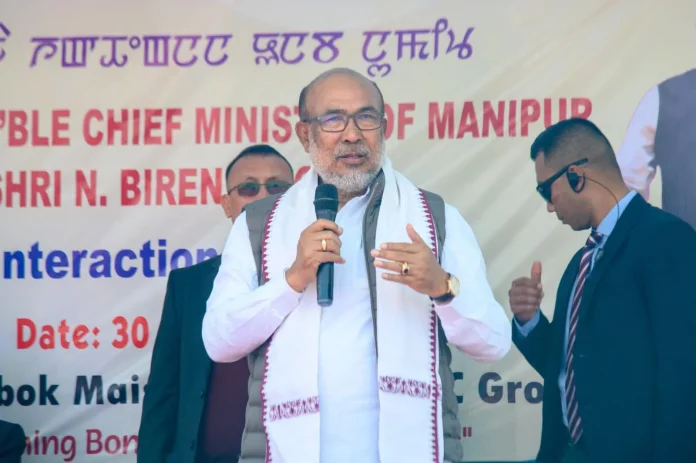IMPHAL, April 1: Former Manipur Chief Minister N. Biren Singh has condemned the recent comments made by Bangladesh’s interim government leader Md Yunus, calling them “provocative and irresponsible.”
Yunus had referred to the Northeast states of India as a landlocked region, posing them as a strategic pawn to serve Bangladesh’s geopolitical ambitions. Singh firmly asserted that India’s unity and territorial integrity are “non-negotiable” and warned Yunus to exercise restraint in his remarks. He emphasized that such statements could lead to consequences for Bangladesh if not corrected.
Singh’s strong statement is part of the growing pushback from Indian leaders against any narrative questioning the status of the Northeast or India’s sovereignty.
Additionally, Pradyot Kishore Manikya Debbarma, the Royal Scion and Founder of the Tipra Motha Party, also criticized Yunus, urging the Government of India to take action from a position of strength. Yunus had, in a video, called the Northeast states “landlocked,” suggesting they have no access to the ocean, and even encouraged China to invest in Bangladesh, positioning the region as a vulnerable strategic area.
Debbarma sharply reacted to these remarks, which he saw as a direct threat to the Northeast. He further stated that unless India changes its diplomatic strategy, such threats will continue. Drawing parallels with strong leaders like Trump and Putin, Debbarma called on India to act firmly in its dealings with Bangladesh, stating, “We must respond with strength and integrity.”
Debbarma also pointed out historical issues, such as the treatment of indigenous communities in Bangladesh, including Chakma, Manipuri, Garo, and Khasi people, and the ongoing tensions in the Chittagong Hill Tracts. He emphasized that Bangladesh’s stance would not change, and urged India to recognize the strategic threats posed by Bangladesh, particularly in relation to the Chicken’s Neck corridor, which is vital for India’s access to the Northeastern states. He concluded by reaffirming his readiness and that of the Tiprasa community in Bangladesh to act, calling on the Government of India to prepare a stronger response.

